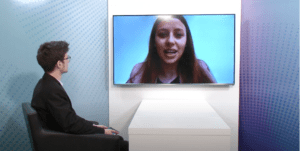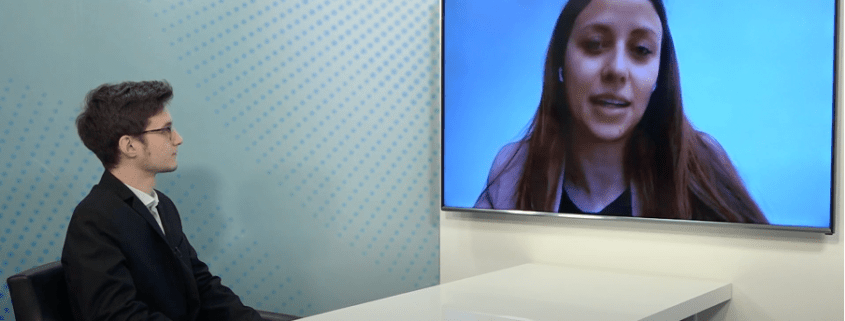Irena Joveva, MEP, spoke to TV IDEA on Friday, 25 February 2022, about the current developments both at home and in the EU. Among other things, she expressed her position on the Russian aggression on Ukraine, the rule of law and the state of the media, and presented her views on this year’s super-election year in Slovenia.
Joveva started by strongly condemning Russia’s invasion of and aggression against Ukraine, but added that condemnation itself will not help people but rather that decisive action was needed. She advocated all-encompassing sanctions that would also reach Russian president Vladimir Putin, his cronies and oligarchs, as that would render him the most isolated. At the same time, she commended the EU’s swift and unified response.
“It must be made very clear to the Russian president that no one is almighty. That not even he is almighty, despite leading a country such as Russia. That we live in the 21st century where there are international law, treaties, commitments, memoranda, and agreements, and that no one can simply do whatever they want. Most certainly not someone who is nostalgic for old times.”
The speakers went on to touch on the area of the rule of law and the recent ruling by the Court of Justice of the European Union dismissing the appeals by Hungary and Poland against the new EU legislation on the conditionality linking the disbursement of EU funds to the respect of the rule of law. In so doing, the Court reaffirmed the validity of the European rules allowing for the suspension of payments of EU funds in the event of non-compliance with the rules regarding the rule of law. Joveva stressed that suspension of funding over rule-of-law issues is a measure of last resort, yet necessary for those Member States or leaders who do not respect the rule of law and who misuse European taxpayers’ money for their own personal or spurious interests.
When asked about the influence of Hungarian capital on developments in Slovenia, Joveva replied that it was primarily the result of close links between the Slovenian and Hungarian Prime Ministers. She sees the situation as a potential returning of favours between Janez Janša and Viktor Orban. She stressed the importance of a change of power in the upcoming election so that Slovenia does not join the likes of Hungary and Poland.
 In response to the question about the state of the media in Slovenia, Joveva expressed concern that the situation in this area had been poor for a long time, but with the current government coming to power it had deteriorated drastically. Independent media are thus subject to smear campaigns, attacks and pressure. To counter that, the EU is drafting the European Media Freedom Act, which will equip MEPs and the European Commission with stronger tools to act in this area.
In response to the question about the state of the media in Slovenia, Joveva expressed concern that the situation in this area had been poor for a long time, but with the current government coming to power it had deteriorated drastically. Independent media are thus subject to smear campaigns, attacks and pressure. To counter that, the EU is drafting the European Media Freedom Act, which will equip MEPs and the European Commission with stronger tools to act in this area.
At the end, the two interlocutors touched on the current “super-election year” 2022. Joveva said it is indeed a pivotal election because Slovenian citizens will be deciding on whether we continue sliding into illiberalism or step back onto the path of liberal democracy. She believes that people are aware of the importance of this election, which she sees as a kind of a referendum.
Take a look at the video (in Slovene) of the conversation, where Joveva also spoke on other topics, such as the recent visit to Ljubljana of the President of the Renew Europe political group in the European Parliament, the health crisis, and the latest Eurobarometer survey.





Leave a Reply
Want to join the discussion?Feel free to contribute!